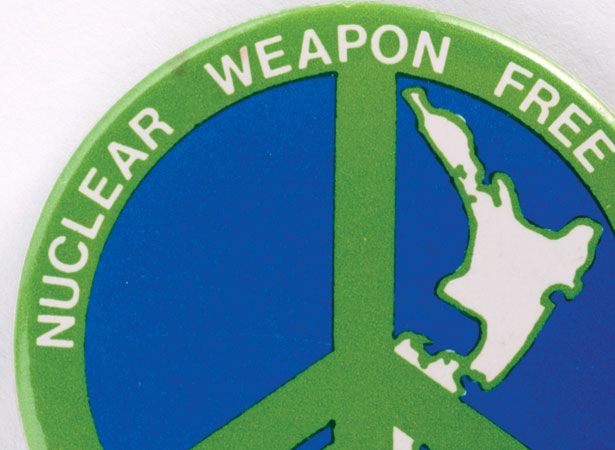
The New Zealand Nuclear Free Zone, Disarmament, and Arms Control Act was passed into law, establishing this country as a nuclear and biological weapon-free zone.
The Act was passed in the aftermath of the mid-1980s nuclear ships stand-off between New Zealand and the United States. The nuclear-free movement had its roots in ideas that emerged in the 1960s: a push for an independent, ethical foreign policy which grew out of opposition to the Vietnam War; and environmentalism, which sought to preserve New Zealand as a green unspoilt land.
In a largely symbolic action, the US Congress retaliated with the Broomfield Act, downgrading New Zealand’s status from ally to friend. Labour Prime Minister David Lange’s response was that if the cost of New Zealand’s nuclear-free status was the end of the ANZUS security alliance, this was a ‘price we are prepared to pay’.
In 1989, 52 per cent of New Zealanders indicated that they would rather break defence ties than admit nuclear-armed ships to their harbours. By 1990, even the National opposition had signed up to anti-nuclearism.
Read more on NZHistory
Nuclear-free legislation – Nuclear-free New ZealandOverview – The Cold WarDavid LangeLast decade – The Cold War1987 - key events – The 1980s
External links
How to cite this page
'New Zealand goes nuclear-free', URL: https://nzhistory.govt.nz/new-zealand-becomes-nuclear-free, (Ministry for Culture and Heritage), updated 8-Oct-2021
